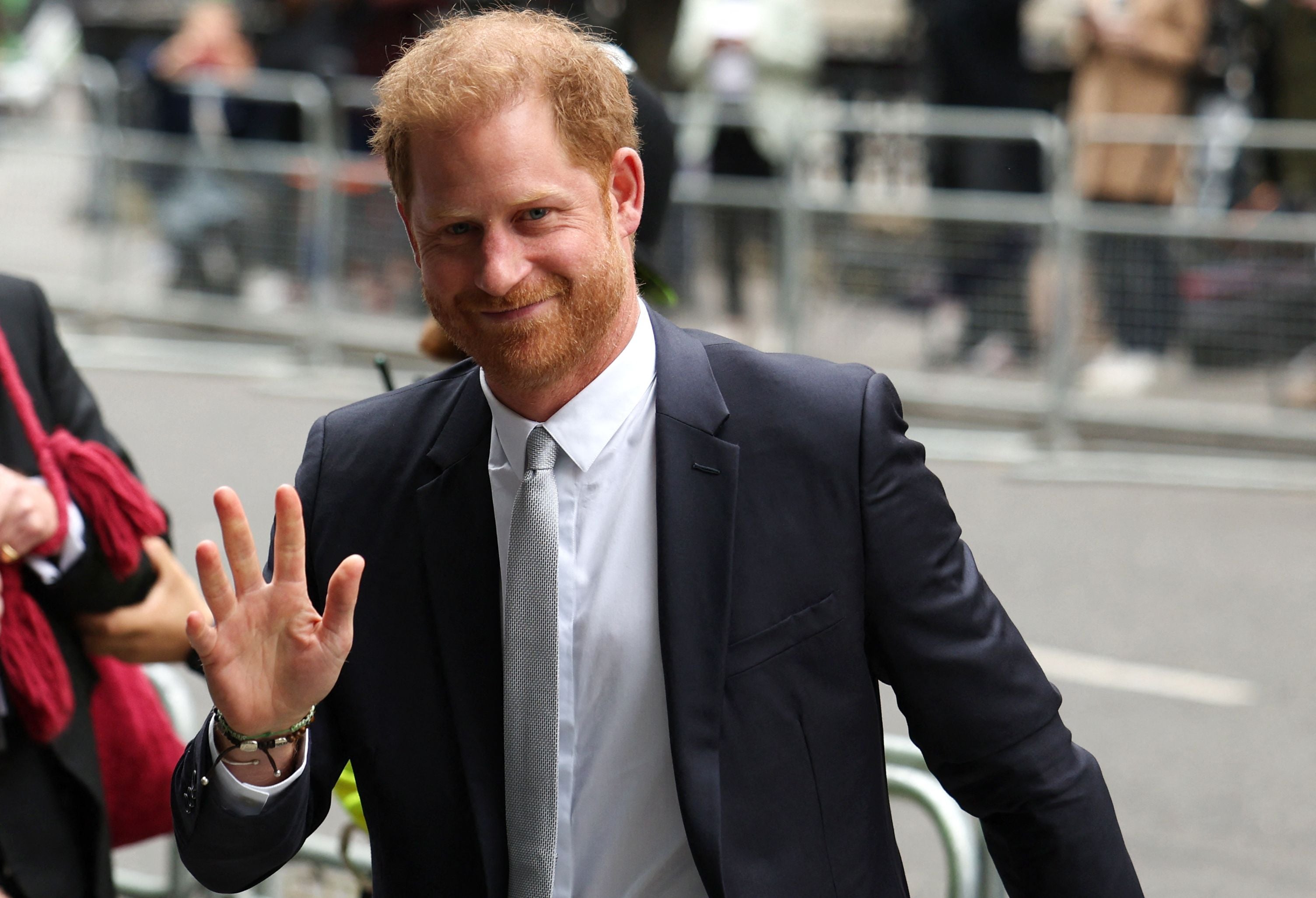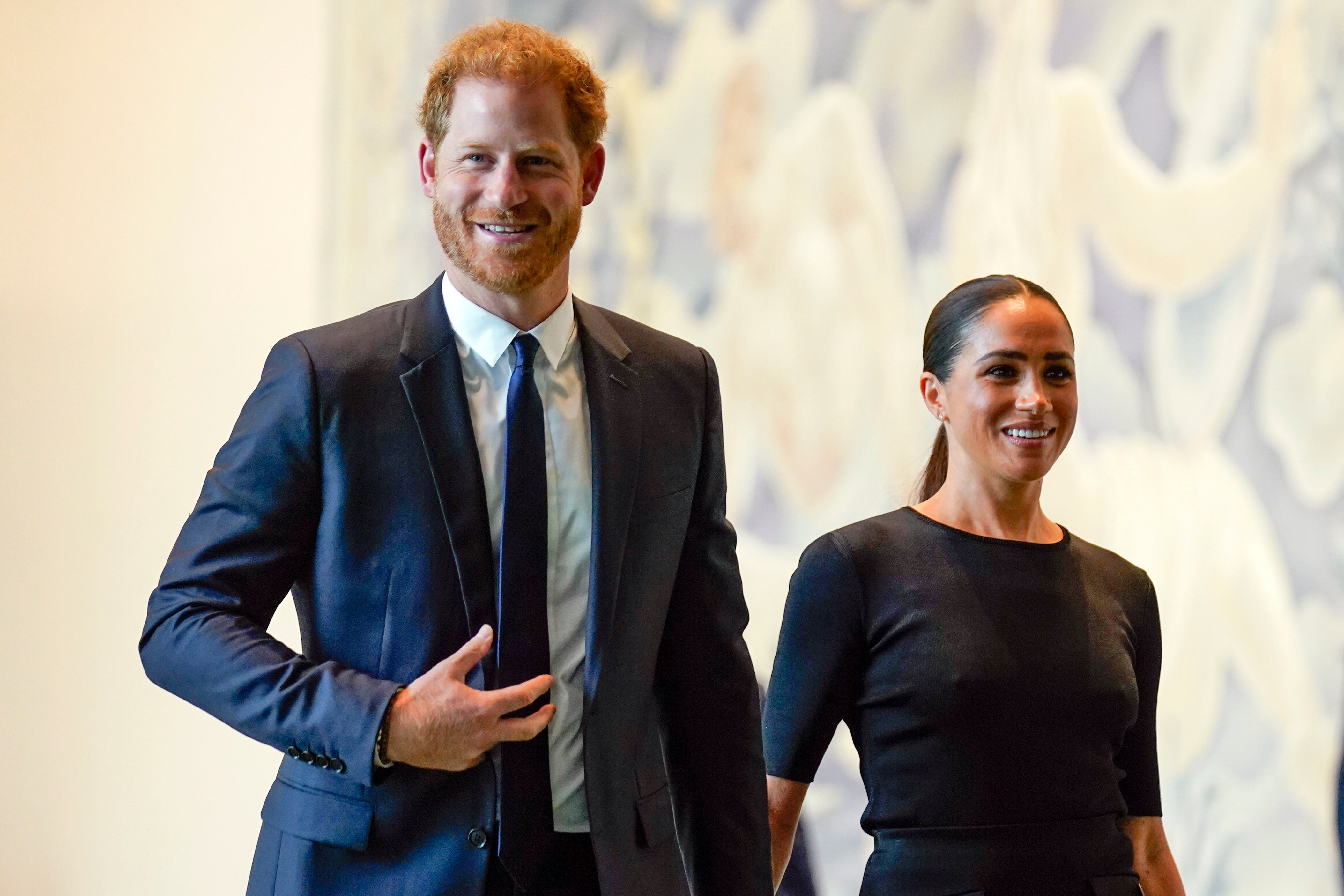I watched in horror as Harry told his truth, his whole truth and nothing but his truth...
...and what I saw in the witness box has convinced me it’s now time for the King to take a stand, writes veteran royal commentator Robert Jobson

After more than a day and a half in the witness box, his courtroom ordeal was finally over. “How has that made you feel?” his barrister, David Sherborne, asked sympathetically. Harry puffed out his cheeks and replied, emotionally: “It’s a lot.”
This was, in fact, only round one of the prince’s egocentric battle to reform what he insists is wrong with the free press in Britain. According to Harry, his father, King Charles, has described this quest as a “suicide mission”.
After becoming the first senior royal to give evidence in court for more than a century, it wasn’t quite as bad as that. But unlike when the future King Edward VII took to the stand in what became known as the royal baccarat scandal, there is a lot at stake.
Some believe Harry’s decision to take on the tabloids over alleged phone-hacking and illegal privacy intrusions is courageous. If his claims are upheld, it is right that he should be compensated and receive an apology.
Others feel his decision is foolhardy, constitutionally dangerous, and will ultimately achieve little other than to generate even more headlines about his private life.
Since leaving the UK for California, Harry has had plenty of airtime, and shown little concern about revealing the private details of his life, and that of his family – the publication of which he would otherwise deride as tabloid intrusion.
He has had hours to put forward his views in self-indulgent documentaries, and softly-softly television interviews to sell his book, in which he controlled the narrative. His ghost-written memoir Spare pointed the finger of blame at many who were afforded no right to reply.
Indeed, Harry seems to have spent all his time, since quitting as a “working” royal and moving to the US, telling “his truth” through every medium available to him.
This time, however, his truth was under oath, as he was cross-examined not by a TV friend but by a razor-sharp King’s Counsel, Andrew Green, on behalf of Mirror Group Newspapers.

Despite having had years to prepare for his day in court, Harry simply did not have answers to the most obvious questions of all. Time and again, Harry’s response to Mr Green’s questioning was “I don’t know.”
Harry was taken through 33 different stories that he had claimed to have come from “unlawful information-gathering”. But his case was hardly bolstered by it being pointed out that many of the stories had appeared in other newspapers in the weeks before. Some had even been printed before the prince owned a mobile phone.
Harry wasn’t going to let those points deter him. “Who wrote that story?” he asked repeatedly. “You could put that question to them.” On several occasions he had to be reminded by Mr Green that it was his role to ask the questions and Harry had simply to answer them.
His second day in the witness box carried on in a similar vein. This time he was confronted with lurid headlines about how he had visited a Spearmint Rhino lap-dancing club, and the ensuing row with his girlfriend at the time, Chelsy Davy.
The Sunday People reported at the time that Ms Davy had been “screaming at him for half an hour” on the phone. Another story described the couple having “monumental” arguments. When asked for proof that these and other stories were the result of phone-hacking, the prince could only reply that it was “suspicious”.
Sometimes his answers in the witness box contradicted his own version of events in his tell-all memoir, in which he spectacularly breached his own privacy and that of his family. On other occasions it emerged that information he claimed to have been obtained by hacking had been put into the public domain by the palace press office.
At worst, his responses from the stand were reminiscent of Prince Andrew’s disastrous Newsnight interview in demonstrating his distinct lack of grasp on reality.
For a man apparently committed to reforming the press, he showed little understanding of the way it works.
In one striking example, the court heard Harry was unhappy about a story from May 2005 about his time at Sandhurst. The prince had suffered a knee injury, it was reported, which led to complaints from fellow cadets that he was being let off gruelling marches.

Harry told the court it must have come from hacking, and that its publication had led to him “worrying [he] couldn’t trust anyone for fear that it would end up splashed across the tabloids”.
In fact – as Mr Green pointed out – that story had initially appeared in The Independent, in an article by “the respected defence correspondent” Kim Sengupta. That story did not come from hacking but from contacts, as so much good journalism does. A point Harry seems unwilling to acknowledge.
If his criticism of the press sounded familiar, it was also taken to new heights of hyperbole. He accused journalists of having “blood” staining their “typing fingers”.
Harry also put a new target in his sights in court: the government. He did what members of the royal family are supposed never to do, and directly criticised the ruling party, accusing it of collusion.
In his witness statement, he said: “Our country is judged globally by the state of our press and our government – both of which I believe are at rock bottom. Democracy fails when your press fails to scrutinise and hold the government accountable, and instead choose to get into bed with them so that they can ensure the status quo.”

He seems not to have considered the difficulties his actions cause the King and his brother William. He is fifth in line to the throne, but has become a constitutional liability.
As head of state, Charles – and one day William, when he is king – will undertake constitutional and representational duties that have developed over a thousand years of history.
In all of these roles, the sovereign is supposed to be supported by members of their immediate family. Harry has decided that his role is to disrupt. It is little wonder the two are barely on speaking terms.
So far, the King has decided not to act, ignoring calls for him to strip his second son of his title. But given Harry has now turned his guns on the elected government, MPs and their constituents might feel there is a contradiction in having this expat prince as fifth in line to the throne.
Harry’s words will undoubtedly have unnerved the King, senior royals, and the mandarins at the palace.
They were misguided and dangerous, too. Of course Rishi Sunak and his ministers are held accountable by the press. To suggest they are not is nonsense, as a cursory glance at the front pages will tell you.
Harry’s gripe, in truth, is not with the government – although he is involved in another court fight to ensure he gets state-sponsored security – but with the free press.
A free press that in his view spends too much time writing things about him and his wife that he cannot control. He said again this week that he was bringing his case against Mirror Group Newspapers to stop “intrusion and hate” against him and Meghan.
But much of what he is complaining about predates the Leveson Inquiry. Since then, thankfully, much has changed in the media landscape for the better. It is a very different place.
Harry once said to me on a flight to New Zealand – when I asked him what he would be doing next after I had broken the story that he was quitting the army – that I would probably know about it first and report it.
He was approachable then. Open, happy to chat to reporters. He even invited us to enter a press team in a pub quiz on the tiny and remote Stewart Island. Within a few years his attitude had hardened. He began to treat reporters he knew on first-name terms with disdain.
I am a monarchist. I believe the King and working royals play an important role as patrons of more than 1,000 charities and organisations. As for this court case, its merits will be decided by a judge.
But in my view, it is time for decisive action to be taken by the King or parliament over the divisive figure of Prince Harry.
He seems hell-bent on damaging the institution of the monarchy, despite insisting on keeping his royal title. Surely he is either in the royal family or out. If in, he should fall into line like other royals.
If out, then he should be removed from the order of succession.
Robert Jobson is the author of ‘Our King: Charles III – The Man and the Monarch Revealed’




Join our commenting forum
Join thought-provoking conversations, follow other Independent readers and see their replies
0Comments